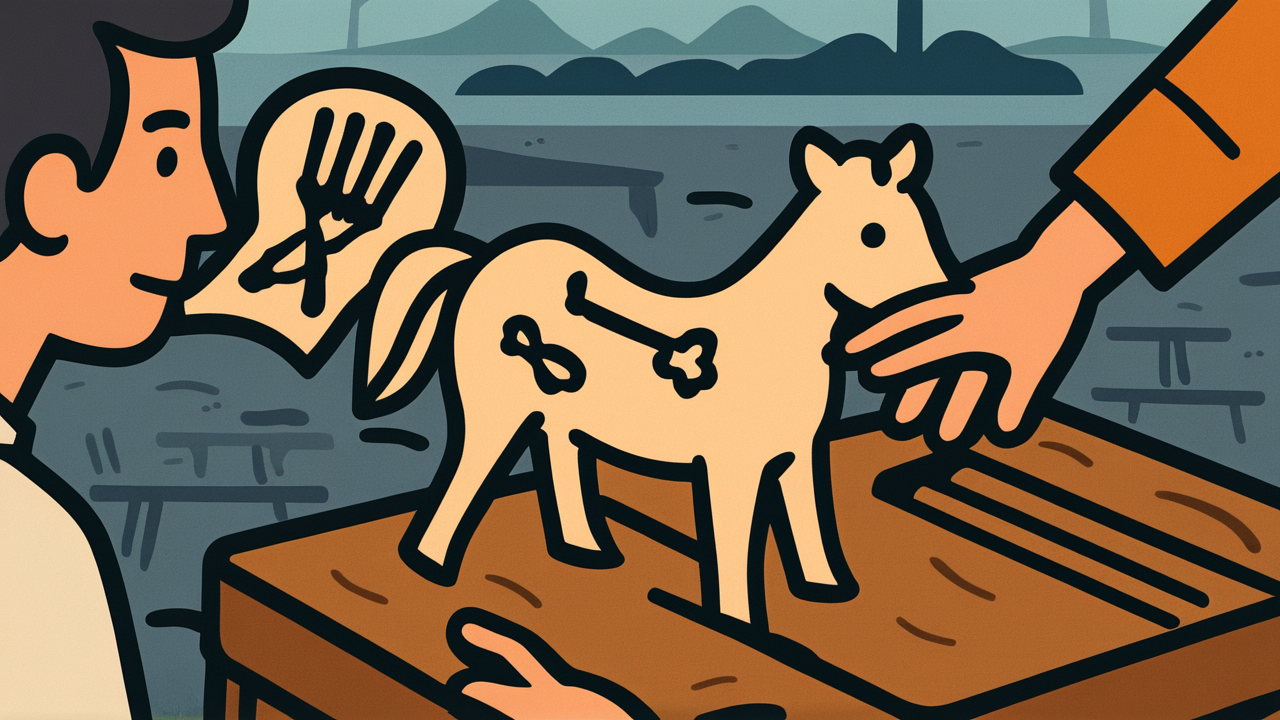How to Read “死馬の骨を買う”
Shiba no hone wo kau
Meaning of “死馬の骨を買う”
“Buy bones of dead horse” means to attract excellent talent by first treating people close at hand generously, thereby demonstrating one’s attitude and ultimately drawing in superior personnel.
It represents a strategic way of thinking where one creates opportunities to obtain truly valuable things by seriously engaging with and properly evaluating even seemingly worthless items. This mindset is extremely effective in modern business scenarios as well. For example, even with inexperienced employees, by providing careful guidance and appropriate evaluation, a company’s serious attitude toward human resource development is conveyed, making it easier to attract excellent talent. Also, by responding sincerely to small business partners and customers, it can lead to bigger business opportunities. What this proverb teaches us is the importance of viewing things from a long-term perspective, not just immediate gains and losses.
Origin and Etymology
“Buy bones of dead horse” originates from a historical tale recorded in the ancient Chinese text “Strategies of the Warring States.” This story dates back to the era when King Zhao of Yan wished to recruit wise men.
When King Zhao consulted the sage Guo Wei asking “How can I gather excellent talent?” Guo Wei presented an interesting parable. It was about a king who wanted to obtain a famous horse that could run a thousand li, even if it cost a thousand gold pieces. A retainer went to search for this famous horse, but when he arrived, the horse had already died.
Normally one would give up, but this retainer bought the bones of the dead horse for five hundred gold pieces and returned. The king was naturally angry, but the retainer explained, “If you buy even the bones of a dead horse for this much money, how much value would you recognize in a living famous horse?”
When this rumor spread, people with famous horses from various places began visiting the king one after another. Through this story, Guo Wei explained to King Zhao the principle that by first valuing nearby talent, excellent personnel would gather from distant places as well.
Usage Examples
- Investing budget in new employee training is like “Buy bones of dead horse,” but it demonstrates the company’s attitude
- Actively recruiting from small regional universities is the modern version of the “Buy bones of dead horse” strategy
Modern Interpretation
In modern society, the concept of “Buy bones of dead horse” has become increasingly important. Particularly in an era where corporate and individual reputations spread instantly through social media and the internet, this strategic thinking demonstrates its power.
Looking at the recruitment market, competition for acquiring excellent talent is intensifying. While major corporations secure talent with high compensation, how can small and medium enterprises or startups compete? This is where the “Buy bones of dead horse” mindset comes into play. By providing careful training systems and growth opportunities even to inexperienced workers or those undervalued by other companies, a reputation of “this company values people” is born, ultimately attracting excellent talent.
In modern times, this concept is also applied in the form of “influencer marketing.” More companies are gaining significant returns by discovering new influencers with few followers early and providing appropriate support.
Furthermore, the same applies to regional revitalization. By providing generous support to young people moving to depopulating areas, the region’s appeal spreads through word of mouth, creating a positive cycle that attracts even more migrants. It is in modern times that this classical wisdom is creating new value.
When AI Hears This
Guo Wei’s proposal to the King of Yan—”First, promote me to an important position”—is a perfect example of modern economic “signaling theory.” In signaling theory, the party with information sends “costly signals” to prove their sincerity and capability, and Guo Wei’s proposal is exactly this theory in action.
The seemingly “irrational” act of paying a fortune for dead horse bones was actually an extremely rational strategy. This is because the action possessed “non-fakability.” A king who wasn’t genuinely seeking excellent talent would never waste money on useless horse bones. In other words, this costly action itself became “proof of authenticity.”
The same principle works in modern corporations. When Google offers starting salaries of over $100,000 to new graduates, it’s not just about personnel costs—it’s a signal that “we truly seek exceptional talent.” By investing high costs, they gain credibility that mediocre companies simply cannot replicate.
What’s even more fascinating is that Guo Wei’s strategy calculated for a “chain reaction effect.” He understood the “multiplier effect of investment”—how investing in one ordinary person could attract multiple geniuses—in ancient China. This thinking aligns remarkably with the “seed investment” approach used by modern venture capitalists.
Lessons for Today
“Buy bones of dead horse” teaches modern people the importance of not being caught up in short-term gains and losses, but viewing things from a long-term perspective. Around you too, there may be people or opportunities whose value isn’t immediately apparent. But by seriously engaging with them, unexpected possibilities may open up.
In modern society, immediate effectiveness and efficiency tend to be overemphasized, but what’s truly important is building trust relationships. An attitude of sincerely working on things that don’t provide immediate profit—such as new subordinates, small business partners, or community activities—will eventually return as significant results.
This proverb teaches us the essence of “investment.” By investing not just money, but time, effort, and heart, we can obtain a richer future than expected. Why don’t you start looking at the “bones of dead horse” around you today? You’re sure to make new discoveries.



Comments